Who is Uber's new boss Dara Khosrowshahi?
Global firm's CEO is a high-flying Iranian-American with a PR crisis to fix and a predecessor who's still involved
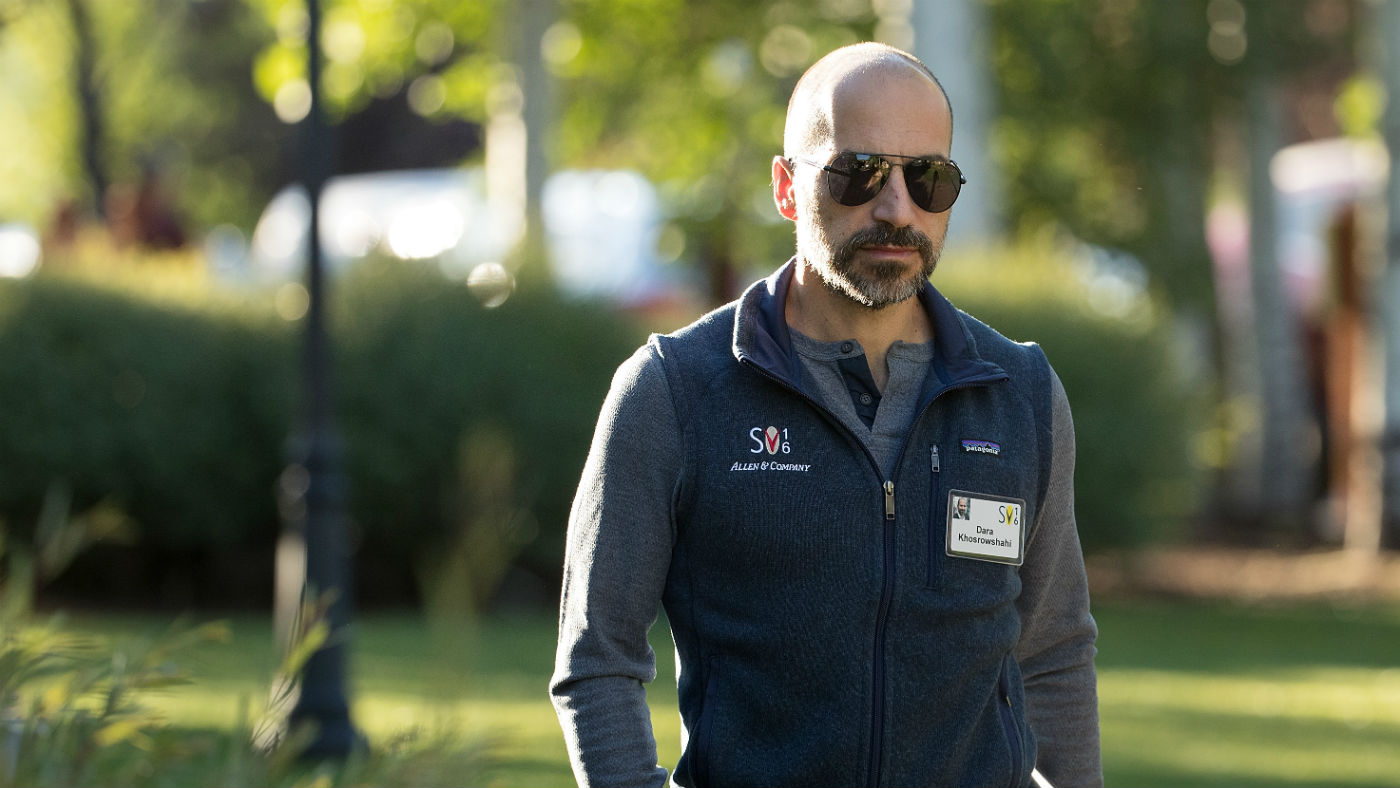
A free daily email with the biggest news stories of the day – and the best features from TheWeek.com
You are now subscribed
Your newsletter sign-up was successful
Uber cashes in on Tube strike: black cabs urged to help Londoners
9 July
London Mayor Boris Johnson has urged the capital's black cab drivers to "help Londoners out" after taxi service Uber came under fire for tripling its prices amid Tube strike chaos.
The Week
Escape your echo chamber. Get the facts behind the news, plus analysis from multiple perspectives.

Sign up for The Week's Free Newsletters
From our morning news briefing to a weekly Good News Newsletter, get the best of The Week delivered directly to your inbox.
From our morning news briefing to a weekly Good News Newsletter, get the best of The Week delivered directly to your inbox.
With no trains on the London Underground, commuters have been forced to find other ways to get to work and roads are expected to be much busier than usual.
Those trying to use the Uber app expressed outrage on Twitter that the company had reportedly multiplied its fares by a factor of 2.8 due to demand.
"Nice to see Uber are cashing in on the Tube Strike," wrote one tweeter.
According to the Daily Telegraph, passengers are being charged a minimum £14.50 fare, plus £3.62 per mile and an extra 43p per minute if the cab is stuck in traffic.
A free daily email with the biggest news stories of the day – and the best features from TheWeek.com
Boris Johnson told LBC: "I hope London's black cab drivers take advantage of this and get additional fares today to help Londoners out."
Bob Oddy, deputy general secretary of the Licensed Taxi Drivers' Association, told the BBC: "The public can rest assured they will not be ripped off by the licensed taxi trade who will only charge the normal fare which has been set with TfL."
The Telegraph points out that Uber faced a "huge outcry" after charging people in Sydney four times the usual price to escape the city during last year's hostage crisis.
"It later offered people free rides out of the area and explained that it was their surge pricing model which is triggered automatically by its algorithm," says the newspaper
Uber says its rates increase to encourage more drivers to become available when demand cannot be met by the number of drivers on the road.
"We take notifying you of the current pricing seriously," it explains on its website. "To that end, you'll see a notification screen in your app whenever there is surge pricing. You'll have to accept those higher rates before we connect you to a driver."
Uber: why London cabbies hate the cheap taxi app
24 June
London's black-cab drivers have long been venting their anger against Uber, the car service that allows people to hail a cab and agree a fare using their phone.
Last summer, the Licensed Taxi Drivers Association (LTDA) brought parts of the capital to a standstill with a mass protest against what they said was Transport for London's failure to hold Uber to the proper regulations. This summer it has launched a poster campaign claiming that the company is not paying tax in the UK, although Uber insists these claims are incorrect.
But London's cabbies are not the only ones getting hot under the collar. Uber has been hit with protests, bans and legal action across the world.
So what is Uber and why all the fuss?
What is Uber?
Uber is an app that "connects drivers with passengers at the touch of a button". The app is free to download and, when accessed, shows all the Uber-accredited cars in a user's vicinity. To hail one, users just tap on a car that is close by, jump in, and at the end of the ride their card is debited automatically. Rates are considerably lower than in a black cab – unless you order a luxury car – and are calculated according to how far a passenger travels and how long his or her journey takes.
Sounds useful. What is the problem?
The latest black-cab driver campaign, launched earlier this month, claims that Uber does not pay tax in the UK. Posters feature on 250 cabs, three advertising vans and more than 25 digital sites across London. Uber says the campaign is "simply incorrect" and adds: "We pay taxes in every country we operate in and comply with all local and international tax laws, this includes the UK."
However, the central argument from British cab drivers is that Uber is operating as a taxi company and should be subject to the appropriate regulations, and that the cars available through Uber should also be classed as taxis rather than minicabs.
Uber insists that it is "not a transportation carrier". But black cab drivers disagree, noting that unlike licensed mini cabs, which have to quote a price up front rather than using a meter, Uber operates like a conventional taxi company by calculating fares based on time and distance, with a user's smartphone acting as the meter.
What is the official response?
In TfL's view, using smartphones to record fares may differ sufficiently from conventional metered travel. Such devices, they say, "do not constitute the equipping of a vehicle with a taxi meter".
"This distinction is important," The Guardian notes, "because it helps Uber keep away from laws that govern licensed taxis".
Transport for London has investigated Uber's business model and believes the company complies with all applicable rules. However, it has referred the case to the High Court and asked it to deliver a binding ruling, the BBC reports. Last night, London Mayor Boris Johnson also suggested that Uber cab drivers would have to sit tests in the future to prove that they can speak English and know their way around London.
The LTDA also launched a private prosecution against four Uber drivers last year, using evidence collected by private investigators, according to The Sunday Times.
Is it just London cabbies who are angry?
No, the California-based start-up has expanded rapidly across around the world and has already been hit with legal action, protests and bans of various kinds in Brussels, Paris, Berlin, Houston, Portland, New Orleans, Seattle, Miami, New York, San Francisco, Chicago, Washington DC, Vancouver and Toronto, the Guardian reports. A Spanish judge recently asked the European Court of Justice to decide how the app should be classified by regulators across the world.
In Paris, there were even reports of violent attacks on Uber cars during a taxi protest at the beginning of the year. Two visitors to the French capital said their Uber car was attacked by "multiple assailants", who broke one of the windows, slashed at least one tyre and vandalised the vehicle. The country's taxi drivers have threatened more strikes this month and one Uber driver in Lyon was said to have been violently assaulted over the weekend.
Meanwhile, in the US, California's labour regulator has ruled that an Uber driver is legally an employee of the company, rather than an independent contractor. This means that the company would have to ensure its drivers in the state are given the appropriate legal rights, such as minimum wage. Vox points out that Uber can "easily afford" to comply with California's labour regulations and, in fact, the ruling could provide Uber with a modest barrier against new rival start-ups that cannot afford the administrative burdens.
Uber raises billions as taxi app prepares for diverse future
23 June
To taxi drivers, members of the judiciary, regulators and the those using the service, Uber represents all manner of things from the sublime to the apparently dangerous. Above all else, though, it is fast becoming one of the biggest success stories in Silicon Valley history.
According to the Wall Street Journal, a fresh round of equity fundraising for the company could see it raise hundreds of millions - and perhaps as much as $1bn - in China through an investment led by one of the country's biggest fund managers, Hillhouse Capital Group.
The Financial Times says the talks would come in addition to a separate $1.5bn equity fundraising, its fifth major call to investors which would value the business at $50bn, and a fresh credit line of as much as $2bn being extended by several of the world's largest banks, including Goldman Sachs and Deutsche Bank.
In total, the paper says Uber will have raised around $10bn if these projections come to fruition, far more than was amassed by giants Facebook and Google prior to their listing. It is also fuelling speculation that Uber will itself seek to float, a common exit route and the one most likely to ensure bullish backers see a return on their investment.
It all comes at a time when Uber is facing growing regulatory challenges, after a judgement in California ruled the company should be considered a taxi service and that its drivers should be considered employees. This chimes with the claims of traditional rivals, who had led protests over its status in London, Paris, Brussels, Berlin and a number of cities across the US.
Uber is likely to use the cash to ensure it has a diversified future beyond simply taking market share in the minicab market, where its unique offer is being eroded by new competition launching in key emerging markets.
The FT says in addition to a rollout in Chinese cities, it is looking to invest in new services such as food delivery in mature markets and it is thought to be investing in research into driverless cars, where it would be competing with the likes of Google.
Two Uber executives to stand trial in France
1 July
Two Uber executives and its subsidiary in France are to stand trial later this year, amid a probe into a service which has been branded illegal and banned in the country.
Uber France general manager, Thibaud Simphal, and Uber's Western Europe director, Pierre-Dimitri Gore Coty, were arrested earlier this week and held in custody overnight on Monday, the Financial Times reports. The arrest comes in the wake of violent protests in recent weeks across Paris against the service – and following a ban on the UberPop smart phone app, which allows people to remotely 'hail' a driver.
The Paris prosecutor's office has said the two will appear before magistrates on 30 September to face six charges, including deceptive commercial practices and illicit storage of personal data, The Wall Street Journal says. The prosecutors also indicted the company itself.
The paper adds that one of the charges, operating a system that puts passengers in touch with drivers without professional license, is punishable under a new French law with a fine of as much as €300,000 (£213,000) and up to two years in prison.
The new French law introduced fines for drivers accepting fares through the app, but has proved ineffective says the Washington Post as the company has been prepared to pay the fines. It told the Wall Street Journal around 30 drivers have been fined, although French authorities out the figure much higher at more than 200.
The company argues that the new law in France is unconstitutional and it is contesting the legislation at France's constitutional court. The company separately told The Register it is keen to "continue talking to the French government about the regulatory framework for services like Uber".
Uber: executives arrested in French clampdown
30 June
Uber's travails in France escalated last night after two of its executives were arrested in Paris amid an investigation into alleged "illegal operations".
France24 reports that Uber France has confirmed that its general manager, Thibaud Simphal, and Western Europe director, Pierre-Dimitri Gore Coty, have been questioned by police in Paris. A spokeswoman for the Paris prosecutor said the two had been detained for questioning over "illicit activity", BBC News Online says.
The arrests come in the wake of a fresh ban on the company's UberPop smart phone app, the equivalent of the UberX app used across America and in London, announced by French interior minister Bernard Cazeneuve last week in the wake of violent protests across Paris.
His decree is effectively a new attempt to enforce a law that came into force last October, levying fines on UberPop drivers. The Washington Post says this proved ineffective as the company said it would simply pay the penalties.
Uber has has been the subject of protests and legal action in a number of countries, including the UK, where London cab drivers blocked traffic in the capital last month. Established taxi drivers say Uber drivers have an unfair advantage because they don't have to conform to the same training or regulatory requirements, enabling them to operate at a lower cost and undercut fares.
In a statement to the Washington Post, Uber said: "We are always happy to answer questions the authorities have about our service – and look forward to resolving these issues. In the meantime, we're continuing to ensure the safety of our riders and drivers in France given last week's disturbances."
[[{"type":"media","view_mode":"content_original","fid":"82912","attributes":{"class":"media-image"}}]]
Uber: violent taxi driver protests prompt ban in France
26 June
The French government has ordered a ban on car-sharing service UberPop following violent protests by taxi drivers.
Nationwide strikes were held by thousands of taxi drivers, who say the service is ruining their livelihoods.
Cars were overturned, tyres were burned and highways around Paris were blocked. Attacks on UberPop cars and other taxis who refused to strike were also reported. One witness claimed protesting drivers were pulling other cab drivers out of their vehicles, shouting abuse and spitting on their cars.
Singer Courtney Love said her taxi had been ambushed in the capital, with people beating the cars with metal bats. "This is France??" she tweeted. "I'm safer in Baghdad."
Abdelkader Morghad, from the FTI taxi union, said drivers, who have to pay thousands of euros for a licence, have lost between 30 to 40 per cent of their income over two years because of UberPop, a car-sharing service rolled out by Uber. It allows unlicensed individuals to become part-time taxi drivers and pick up others in their own cars at much cheaper rates than traditional taxis.
Morghad said the government needed to enforce a law, introduced earlier this year, that stops unlicensed drivers from carrying paying passengers. "UberPop is completely illegal in France, but people are still able to download the app and drivers are still able to pick them up and earn money. How can you explain that? That's the real frustration for us," he told The Local.
Bernard Cazeneuve, France's interior minister, has since ordered police in Paris to issue a decree banning UberPop and said that any cars defying the order would be seized, reports the BBC.
"I have given instructions, considering the grave problems with public order and the development of this illegal activity, to the police prefecture in Paris to ban UberPop activities," he said.
Cazeneuve also claimed that Uber could face charges of "illicit transportation of people" under article 40 of the country's penal code, which is punished by two years in prison and a €300,000 fine.
-
 ‘Those rights don’t exist to protect criminals’
‘Those rights don’t exist to protect criminals’Instant Opinion Opinion, comment and editorials of the day
-
 Key Bangladesh election returns old guard to power
Key Bangladesh election returns old guard to powerSpeed Read The Bangladesh Nationalist Party claimed a decisive victory
-
 Judge blocks Hegseth from punishing Kelly over video
Judge blocks Hegseth from punishing Kelly over videoSpeed Read Defense Secretary Pete Hegseth pushed for the senator to be demoted over a video in which he reminds military officials they should refuse illegal orders
-
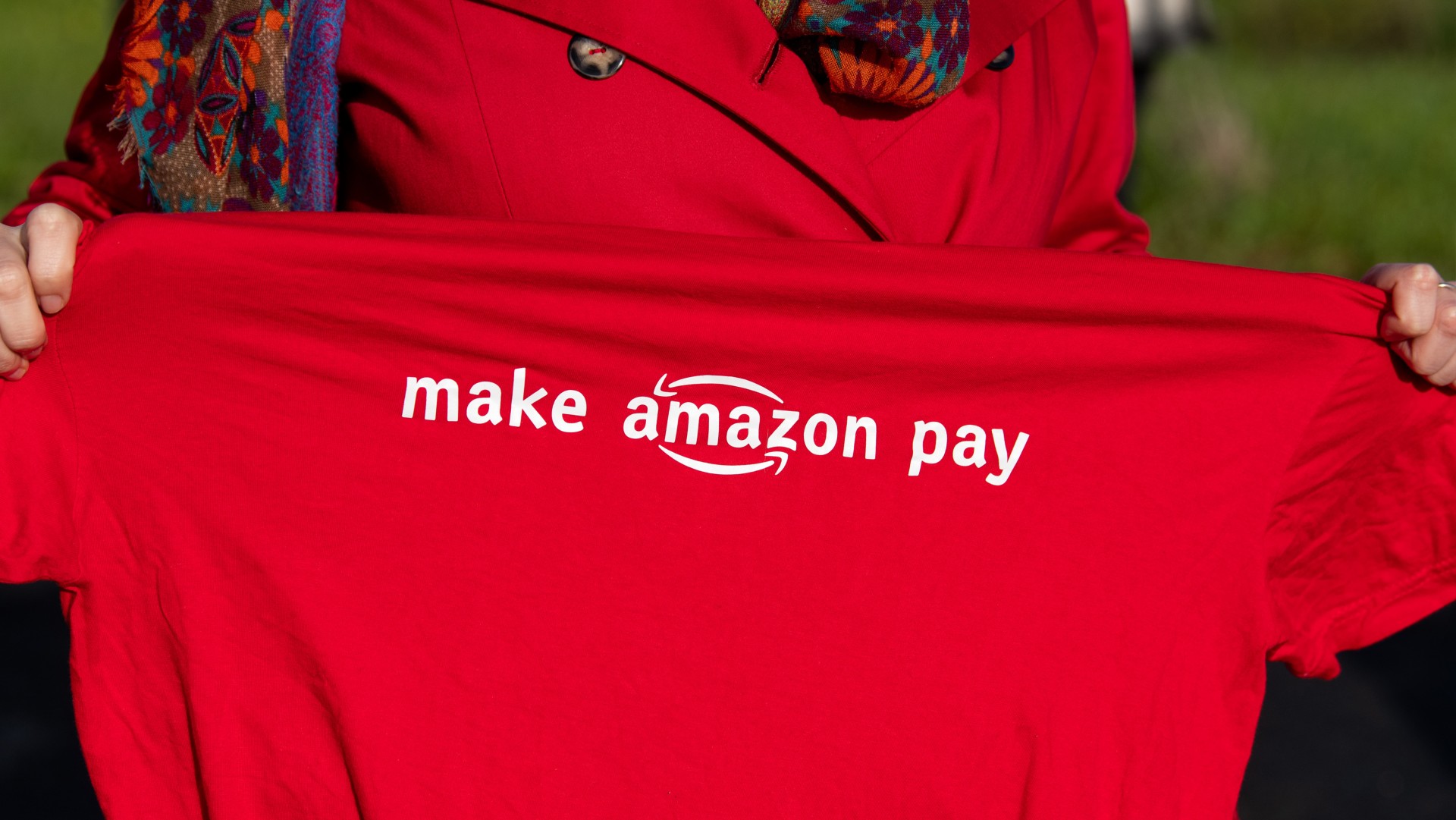 How Amazon’s first UK strike could be a sign of things to come
How Amazon’s first UK strike could be a sign of things to comefeature Big Tech is facing increasing pressure from unions as cost-of-living crisis fuels nationwide unrest
-
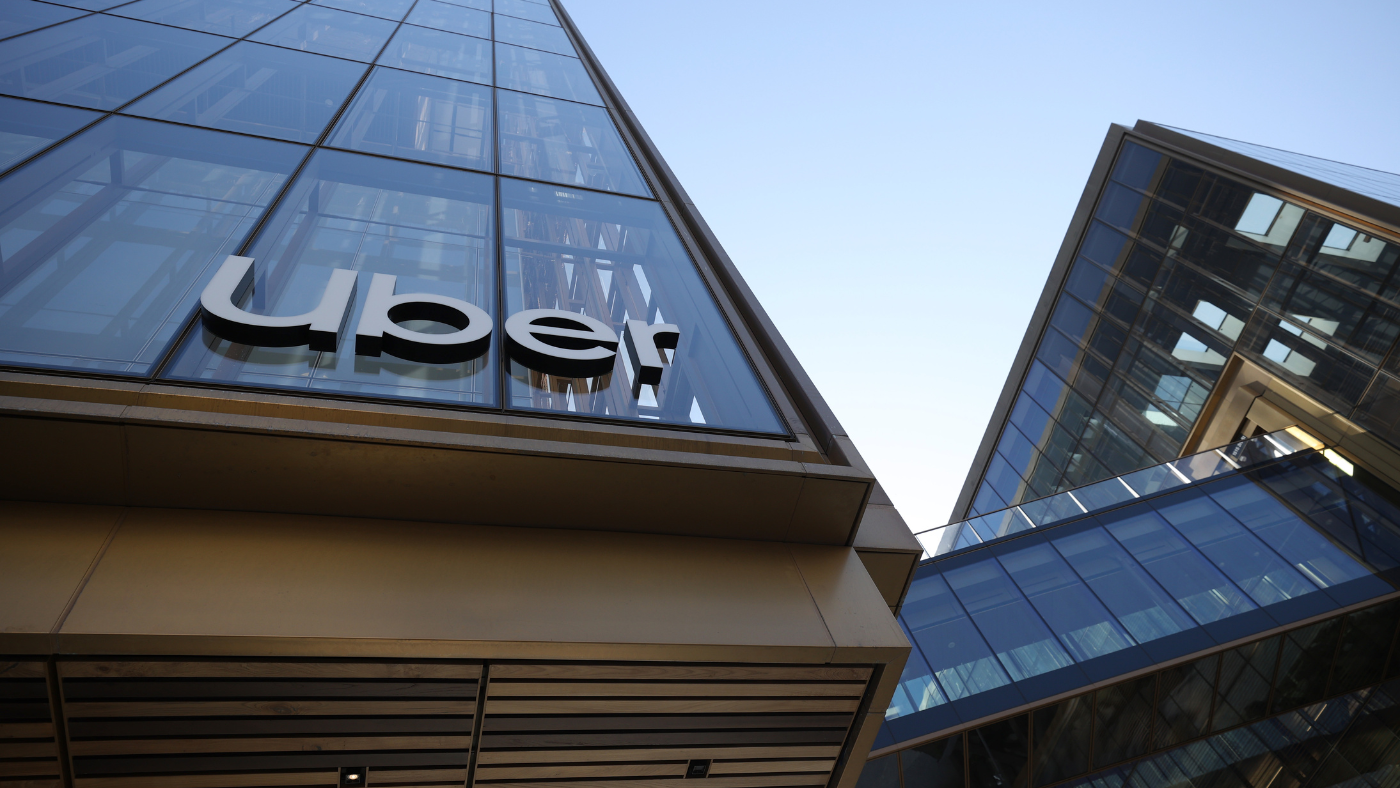 Uber files: what ‘unprecedented leak’ revealed
Uber files: what ‘unprecedented leak’ revealedSpeed Read Investigation exposes extent of government lobbying by Silicon Valley start-up between 2013 and 2017
-
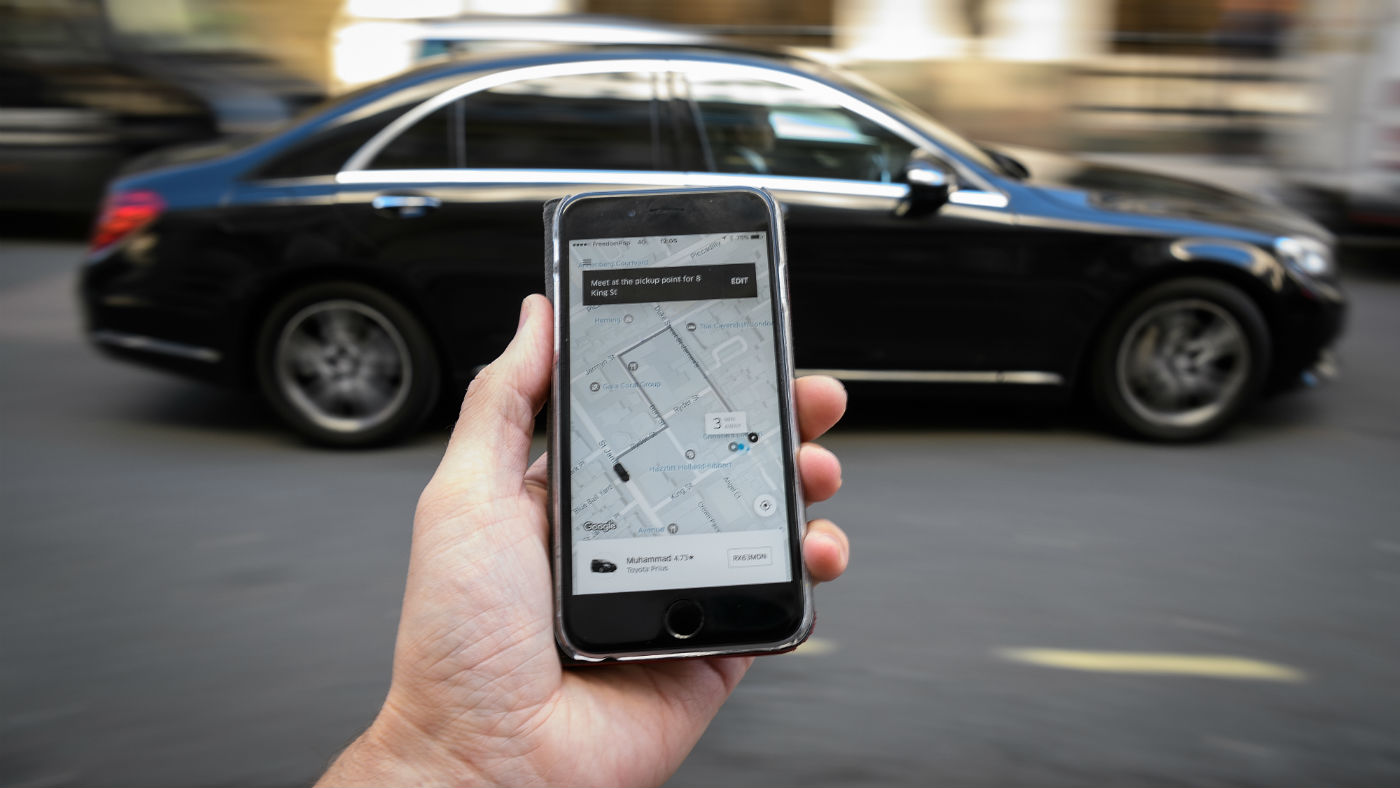 Uber vehicle fleet to be fully electric by 2040
Uber vehicle fleet to be fully electric by 2040Speed Read Ride-hailing company is setting 2030 target for UK in new plan to tackle climate crisis
-
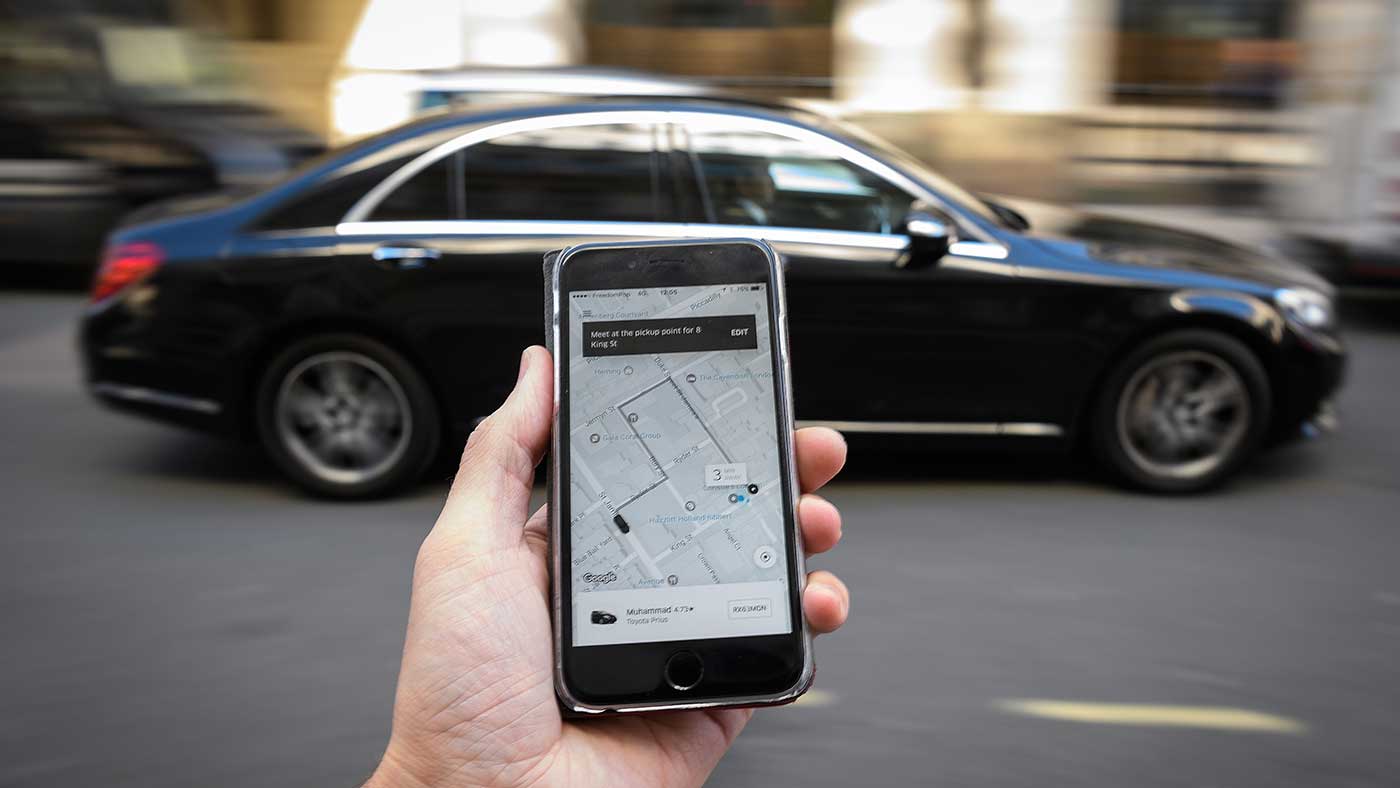 Uber’s licence renewed for two months in London
Uber’s licence renewed for two months in LondonSpeed Read Ride-hailing app lost its bid to reinstate its full operating licence in the capital
-
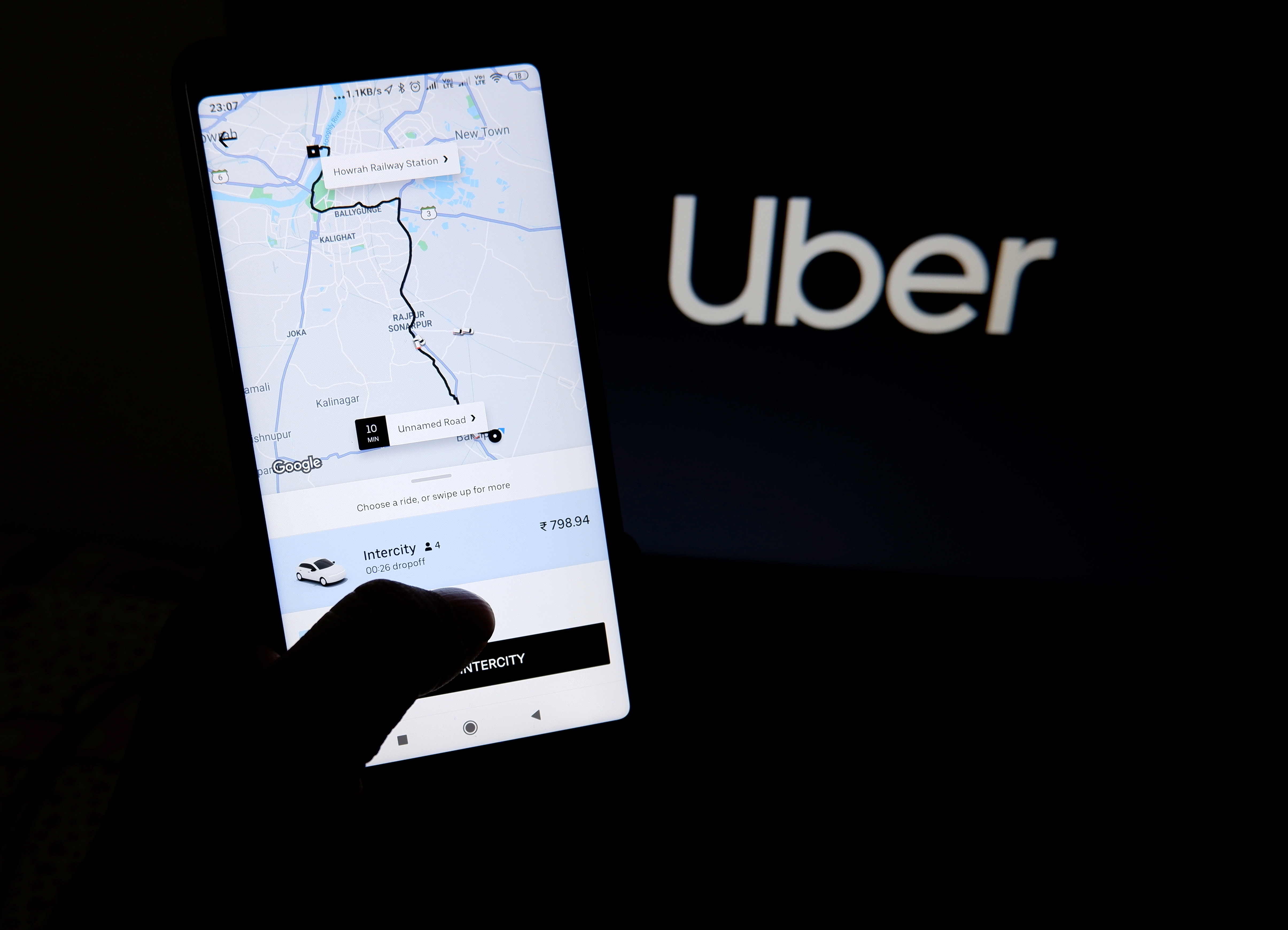 Uber reports $5.2 billion loss in Q2
Uber reports $5.2 billion loss in Q2In Depth The ride-hailing giant also revealed its slowest revenue growth ever
-
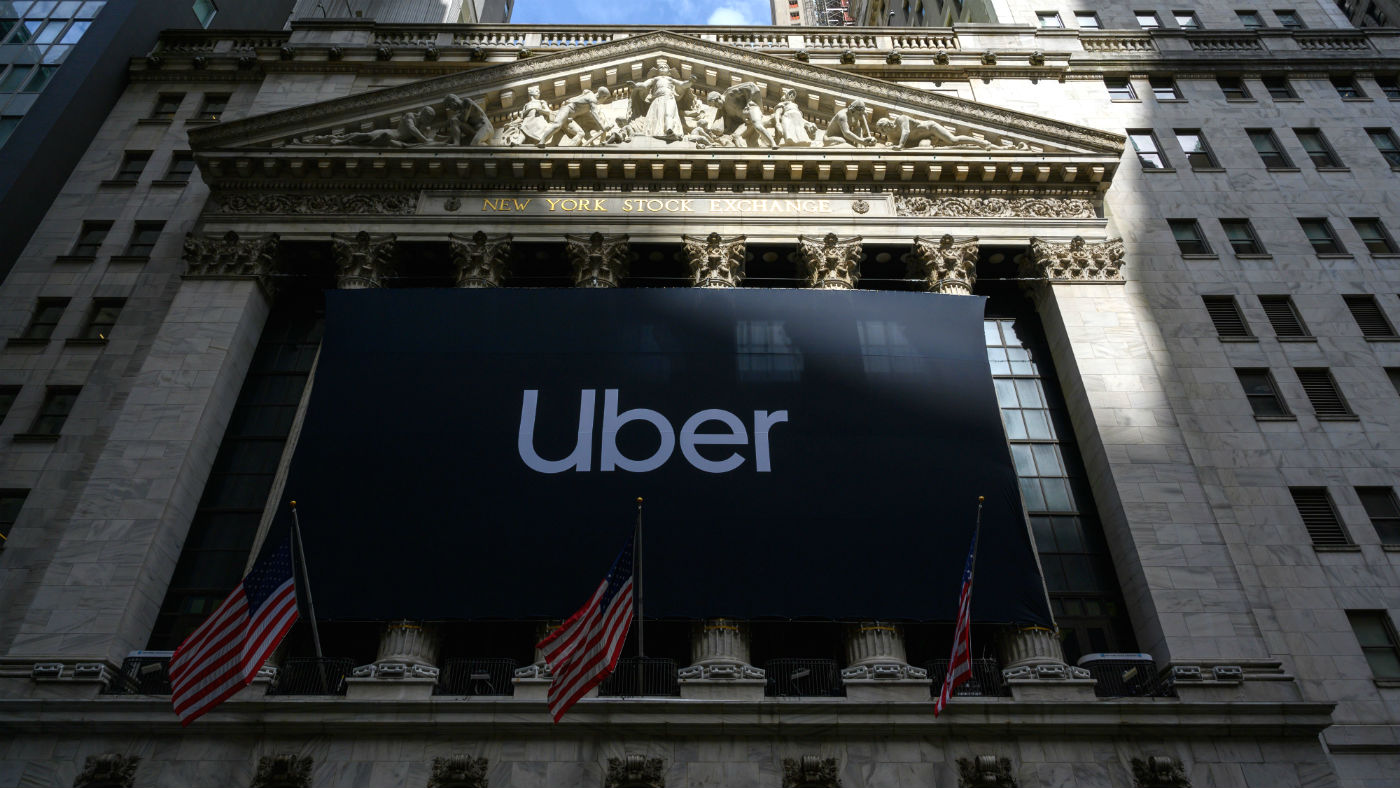 Are we headed for dotcom bubble 2.0?
Are we headed for dotcom bubble 2.0?In Depth Flotations of loss-making firms hit 2000 levels amid warning signs bubble could be about to burst
-
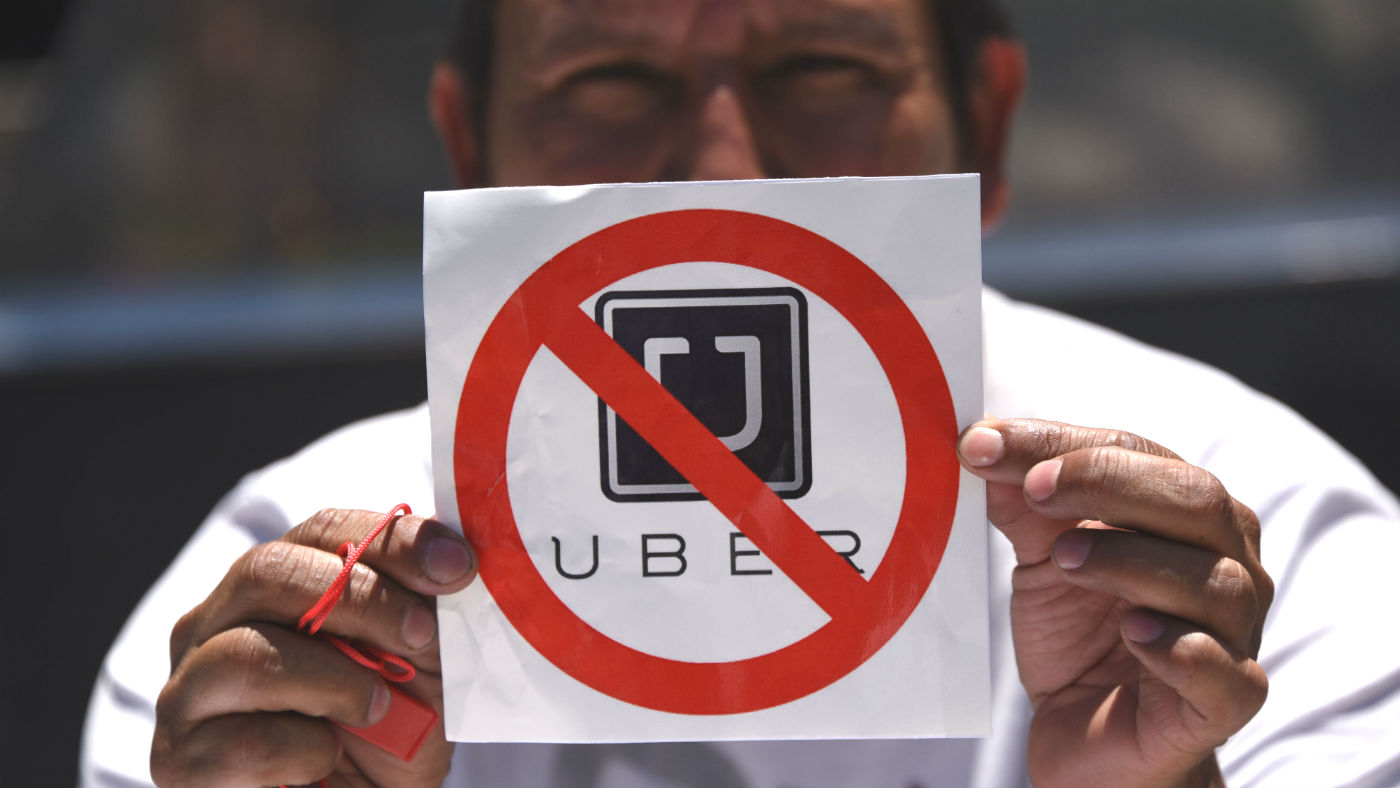 Uber drivers stage global strike ahead of IPO
Uber drivers stage global strike ahead of IPOSpeed Read Walk-out timed to coincide with Uber’s much-anticipated $100bn stock listing on Friday
-
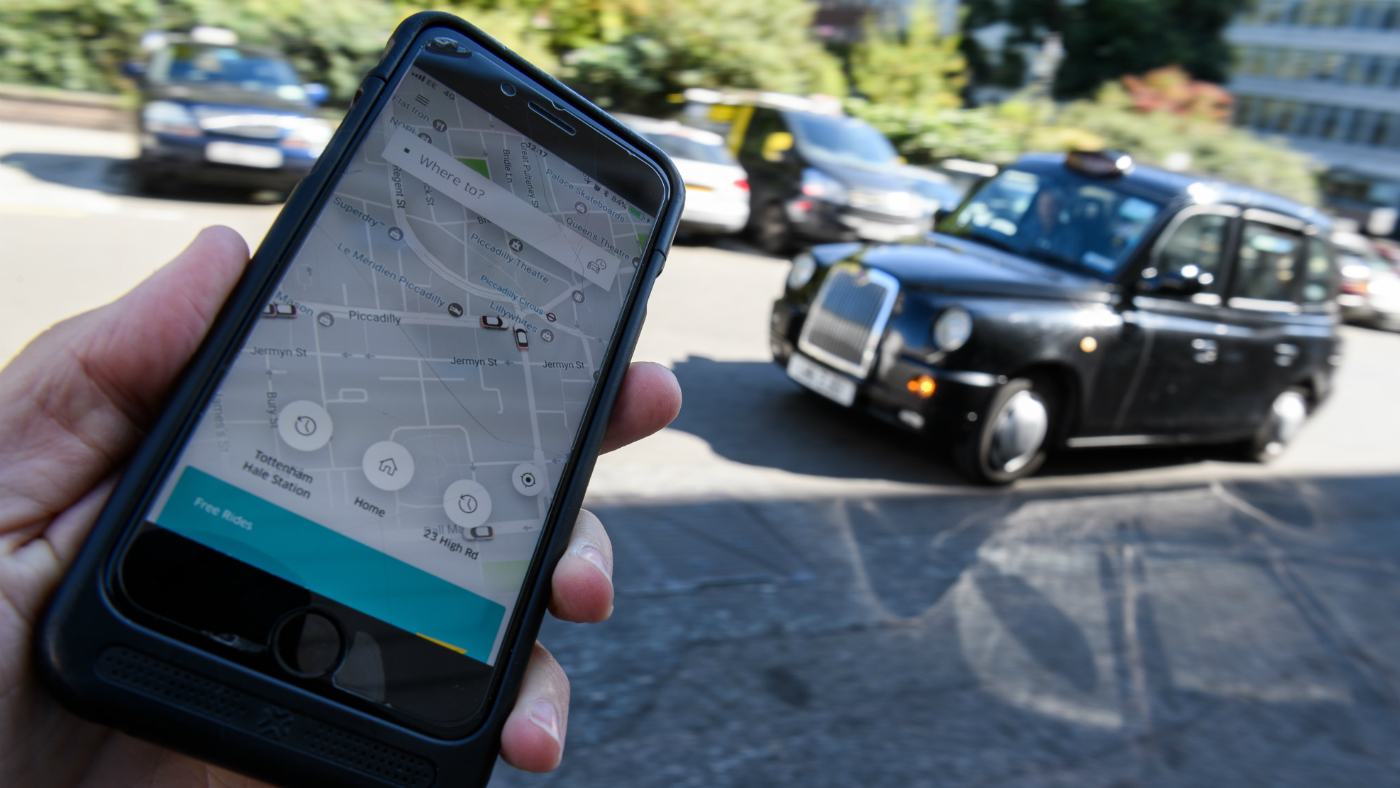 Why Uber is in court again
Why Uber is in court againSpeed Read Ride-hailing platform fighting to restore London licence